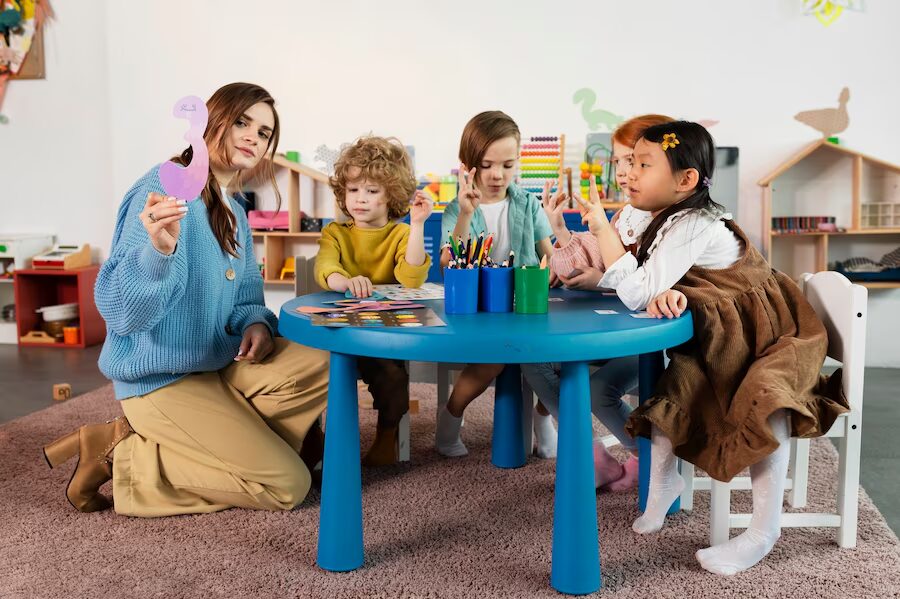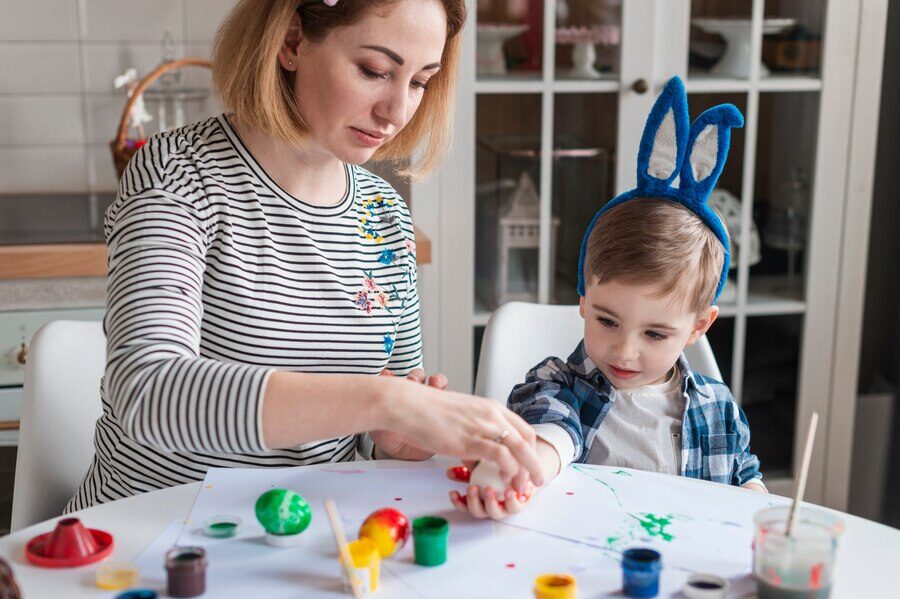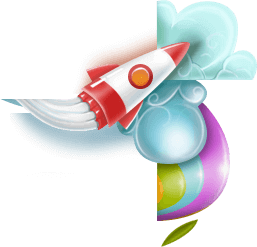
The transition from Montessori preschool to primary education holds a significant milestone in a child’s education. What makes this milestone important is that it is not just a new phase of learning but also a reflection of some of the growth and development that occurs during early childhood. Montessori education stresses independence, self-directed learning, and all-round development, giving children skills essential to making that transition into primary school easier. This informative blog is about what children carry over from their early education in Montessori preschools.
Children learn best when they are given the freedom to pursue their interests in a prepared environment, and so, Montessori education is intrinsically related to the fact that children, through hands-on learning activities, develop critical thinking, problem-solving, and creativity skills. The curriculum is prepared according to individual learning styles and paces since children develop a love for learning and self-motivation.
As soon as children enter primary school, they already possess the skills a Montessori education has fostered. Those skills help them survive not only in an academically and socially controlled school setting but also aid them in their further development.

Creating independence is one of the main features of Montessori education. This means the children can choose their activities, set goals, and manage their time better. This independence allows them to take charge of their own learning, making it easier for them to go to a more structured environment, usually primary school.
Montessori preschools encourage children to think critically and solve problems through experiences. The children can ask questions, experiment, and find answers independently. It is a highly invaluable skill set for primary school, where children often resolve problems analytically and try to apply knowledge in new situations.
Montessori classrooms are multi-aged, which creates a sense of community and cooperation among younger children and older ones, helping them develop a range of vital social skills that include empathy, good communication, and conflict resolution as they start entering primary school and must blend with a larger peer group as well as teacher group.
The Montessori Method encourages love for learning by allowing children to learn in areas of interest at their own pace. This kind of intrinsic motivation helps the child stay engaged and excited in their education, making this easy transition into primary school, where they will continue seeking knowledge and challenges.
Montessori education activities are designed to encourage concentration and self-discipline. A child learns how to focus on the task, learn to remove distractions, and be able to complete projects; all these skills are critical in the much stricter environment of primary school.
Transitioning from Montessori preschool into primary school requires several vital steps to help smoothen the experience for children:
Many Montessori preschools collaborate with local primary schools to get children used to their new environment. This can be regarding field trips, orientation days, or visitation by the primary school teachers. Being familiar makes them less anxious and comfortable in their new environment.
Parents and teachers must be involved in the transition process in schools. Parental communication with either the Montessori preschool or the primary school helps them understand the expectations and changes required during primary education and further enables them to support their child.
Gradual adjustment from the Montessori preschool to primary school is encouraged by assuring the parents that support is offered to their children.
Other schools offer transitional programs that allow children to transition slowly to the new structure and routines. Sometimes, that may result in a shortened day or phasing in for the child to habituate them to the demands of primary schooling.
As the child enters the world of primary school, parents and teachers can also support the establishment of the principles of Montessori by encouraging independence in learning, following through on the child’s interests, and deepening the study of topics of interest. These steps help to anchor the child in this transition.
This stage also needs to be an opportunity to teach the child some coping strategies amid change, challenges, and transitions. A growth mind-set wherein mistakes are looked at as opportunities for learning supports that resilience builds up and helps develop the confidence with which children face new experiences.
The transition from Montessori preschool to primary schooling is a very defining experience for a child. Skills and values gained during the Montessori Method, such as independence, critical thinking, collaboration with peers, intrinsic motivation, and self-discipline, will be helpful in primary school. This phase is a perfect chance to build a learning environment that will be nurturing and supportive on the sides of parents and teachers; hence, children are led to this new educational setup with much confidence and enthusiasm.
Children embark on this new life as primary students with a love for learning encouraged in Montessori classrooms prepared to welcome all that primary education offers. The journey will undoubtedly be full of challenges, but if supported correctly, a child will bloom and keep growing as a lifelong learner.



Copyright wenurturekids © 2025. All Rights Reserved
